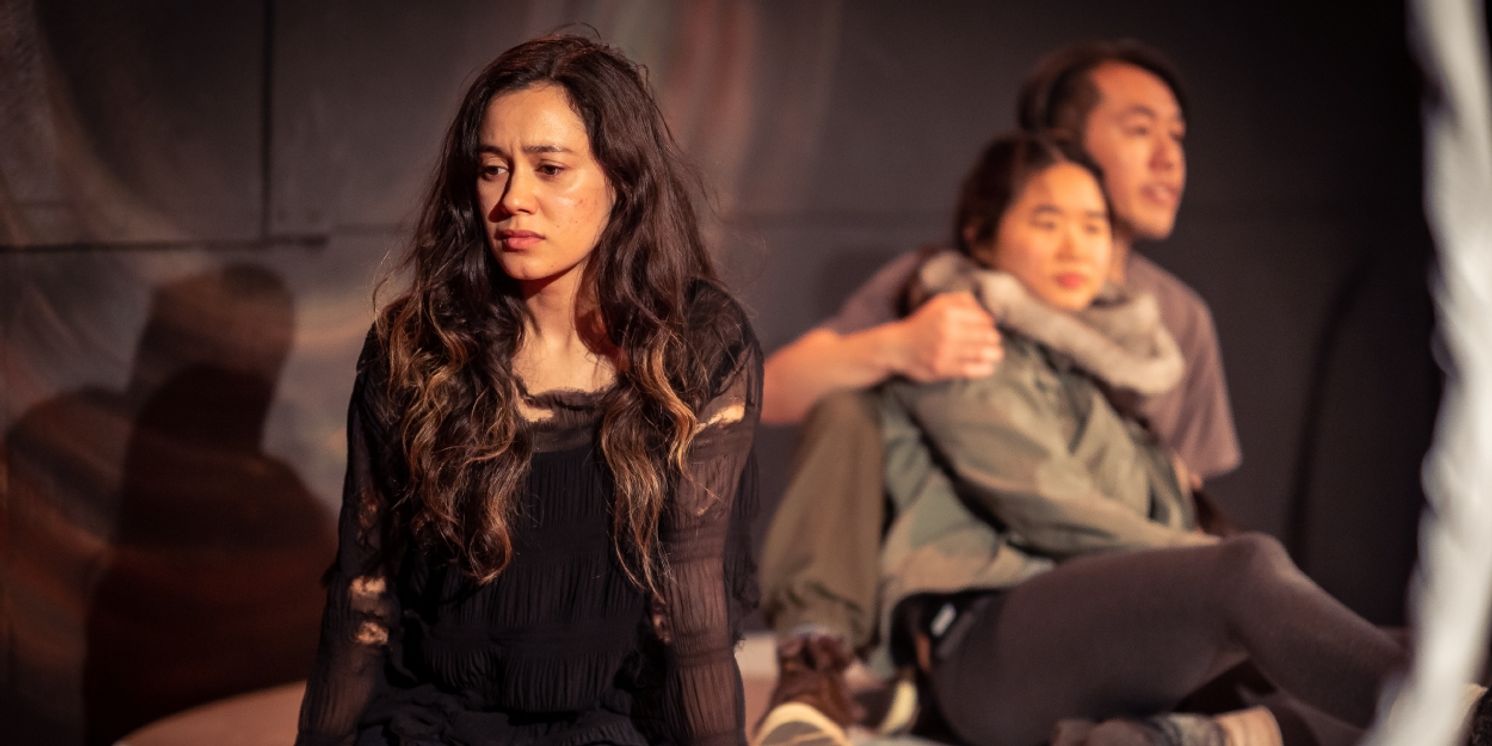Review: COLDHANDS at RUMPUS
The winner of the 2020 Flinders University Young Playwright’s Award.

Reviewed by Ewart Shaw, Thursday 24th November 2022.
Dora Abraham won the 2020 Flinders University Young Playwrights Award with Coldhands and now produces it at RUMPUS. This is always the test for a script, and RUMPUS is the perfect place, versatile, accessible, and committed to new writing, new performers, and new companies.
A monster has sucked all the gold from the land, the sea, and the air. All the gold has been extracted from the community. Gold is brightness, warmth, love, and life. This is a hero's journey, of the most significant themes of our literature. This is a pilgrim's progress with a life-affirming focus. The traverse stage is bounded by metres of ochre-coloured cloth, and the dead trees reach upwards like skeletons escaping their graves. It's the perfect setting.
In this hostile land, a woman wakes a child. They have a journey to undertake. On the way, they meet a man, armed with a spear. Ally, or enemy? Then the woman disappears and most of the play is the struggle between the man and the child. Zoe Allen draws confident and well-articulated performances from her cast of three.
Bonet Leate is the mother, but was she also the shrouded figure who crept among the audience, whispering to selected audience members, or was that not part of the play. She might have been a shamanic presence because, when she returns at the end of the play, there is a significant ritual, maybe designed to flood the world with gold.
Sam Lau's Hong Kong origins have given him that martial arts edge which shows in his impressive spear work, and Danielle Lim grows from a petulant and half-sleepy baby into a worthy opponent. She carries, unknowingly, the secret to the play. That two of the actors are of Asian origin universalises the story, but is also an important recognition of the talent available that isn't traditional Anglo-Australian.
The technical environment is impressive, and this is another RUMPUS hallmark. Kobe Donaldson's lighting and Antoine Jelk's sound design, along with Alex Mader's music are significant features of the play's impact. There are small objects of hidden purpose which glow with red fire and, in the final moments of the play, the interlocking branches of the trees creak and open up hidden chambers. The exposed contents are just too small and dimly lit to be easily recognized. It's a coup de theatre, though, and not often experienced, which is to say, I really love it when a set surprises.
A playwright's influence from history, and from contemporary concerns, is a fascinating place to explore. When Michelle at RUMPUS went through the traditional set of recognitions she also alerted us to the issues in the play, supernatural and horror elements, heightened ritualistic scenes with reference to death, and coarse language. Etc., and I heard myself say "Macbeth".
Sometime into the play one of the actors says "Tomorrow, and tomorrow, and tomorrow." The monster who has stolen and hoarded all the gold is Wagner's Fafner, the giant turned-dragon who sleeps on a pile of treasure. Abraham also draws on decades of fantasy and post-apocalyptic books and films. She knows her audience and they know this world at an almost subconscious level. From this cauldron of ingredients, she has produced an intriguing and heartfelt story, given excellent service by the crew she has assembled.
Word on the Rialto is that RUMPUS will be demolished sometime early next year, a great loss indeed. Word is also circulating of a new venture involving a mill that may replace a Bakehouse.
Photography, @photosbyjamois.
Reader Reviews

Videos

